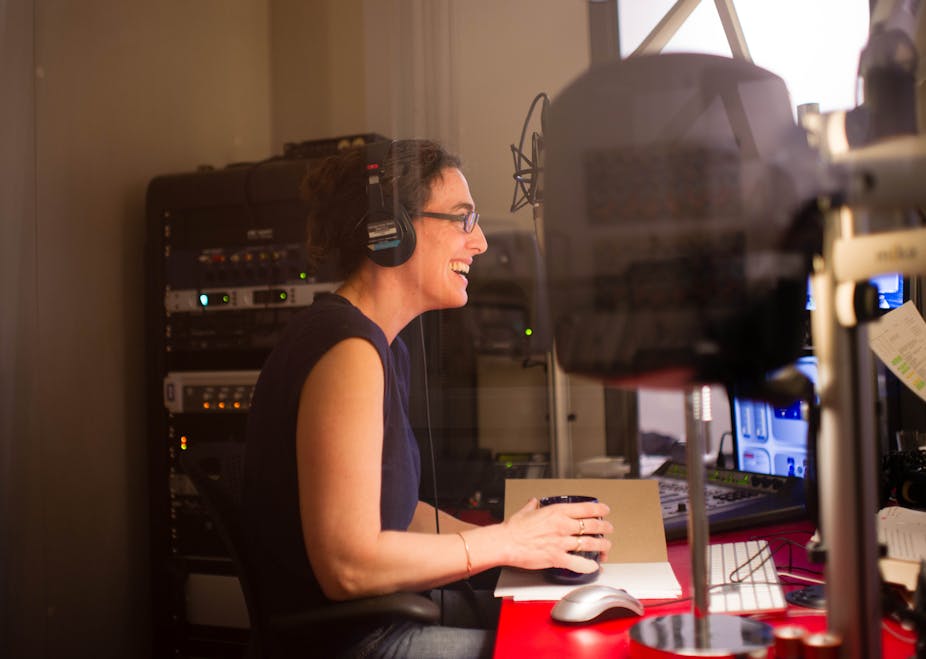I have to confess I made a big mistake in not reviewing the real life whodunit podcast Serial when I listened to the first episode in October. Initially little-known, the podcast has just broken iTunes records by passing five million downloads and streams.
Journalist Sarah Koenig is investigating an alleged miscarriage of justice. High school student Hae Min Lee was murdered on January 13 1999 in Baltimore County, Maryland, when she was 17. She had been strangled and buried in a shallow grave. Her former boyfriend, Adnan Syed, also then 17, was convicted and jailed for 30 years.
We are 15 years on. Rabia Chaudry, a family friend, is now an attorney. She believes in his innocence. There was no physical DNA evidence linking him with the crime. He was too good a boy to kill anyone. Sarah decided to get involved after receiving an email from Rabia.
Eight weeks on and it has become a global audio-file sensation. But I held back on a review initially because of an underlying unease, despite reviewers and feature writers being orgasmic with praise – this podcast has “caught fire”, is “eating us for breakfast”. It is the “greatest podcast ever made”. It “shows us the sausage factory of journalism”, is a “cult podcast that may free an innocent man”. It is undeniably a phenomenon.
Storytelling
It’s easy to explain why Serial is such a big hit. It sells the listener a shot of story-telling heroin, the buzz you get when treading the the borderline between drama and documentary, factual journalism and fiction. This separation can be very thin. The same narrative devices work on each side of the binary.
At the end of the day the success of the podcast is down to extraordinary storytelling. Sarah Koenig is a brilliant observer of human personality. Her linking is novelistic. Her turn of phrase is folksy and sparks the imagination. She introduces the story as a Shakespearean mash-up of teenage love.
The radio production is filmic. Sarah is our camera, ambient sound recorder – and always from a personal perspective. We always remain with her point of view, through every twist and turn. The podcast panders to the voyeuristic joy of knowing this is real life.
We hear her phone calls with Adnan who calls twice a week from his maximum security facility, we meet and get very close to the people involved in the saga. It is intimate. One minute you’re in Rabia Chaudry’s shabby and disorganised office, the next in the police interrogation room, or the trial, or the appeal hearing, or on the telephone with an alibi witness tracked down after 15 years.
Serial exploits the frisson and excitement of investigative gumshoe crime journalism with the drama of John Grisham at his best. But as with some crime novels it’s easy to forget that at the centre of all this lies the very real and ghastly killing of a young woman.
Unease
This is where my unease stems from – the fact that two of the most important women in this narrative are silent because they are dead. Serial has not done enough to give them a voice.
It’s striking we did not hear much about Hae Min Lee or her family until nine episodes in. She certainly hasn’t been characterised fully. Her role as a dead body stuffed in a car trunk, then buried in a park, imagined as post-mortem evidence is somewhat exploitative and undignified. Someone who claims to be her younger brother has condemned the sensationalism and lack of insight into her family’s grief.
Likewise we have heard very little about Maria Cristina Gutierrez, the tenacious lawyer who represented Adnan and was later disbarred for apparently misusing client’s money. She died in 2004. From the beginning we’re made to consider whether Cristina was responsible for a “fuck up” in her last big murder brief, but she hasn’t yet been explored further. The next episode promises to address this issue, but it may be too little too late.
Gutierrez had a formidable reputation for fighting for her clients, for not giving up if she thought an injustice had been perpetrated. In reality it was multiple sclerosis and heart disease that made it difficult to keep up with her workload and she actually disbarred herself when complaints were made.
As she cannot speak for herself, I feel it would have been fairer to hear others speak for her and explain and justify the decisions and strategy she took, rather than imply that her incompetence is a factor.
So I’m not sure that Serial will inspire and herald the birth of the investigative podcast as long-form journalism in the multimedia age, as many are proclaiming. Its first imitator is a rather funny parody on YouTube.
And there is only one Sarah Koenig. Her personality, intelligence and charm are the backbone of the podcast and account for the success of Serial.
Serial is a brilliant conceit. But I fear it will end in unresolved ambiguity and may leave the audience somewhat cheated.
And we must remember that in the real world there is rarely a novelist or Sarah Koenig to deus ex machina your tears, hopes, and insecurities, or indeed to get giant brown-eyed Adnan Syed out of jail for the murder he may or may not have committed.

